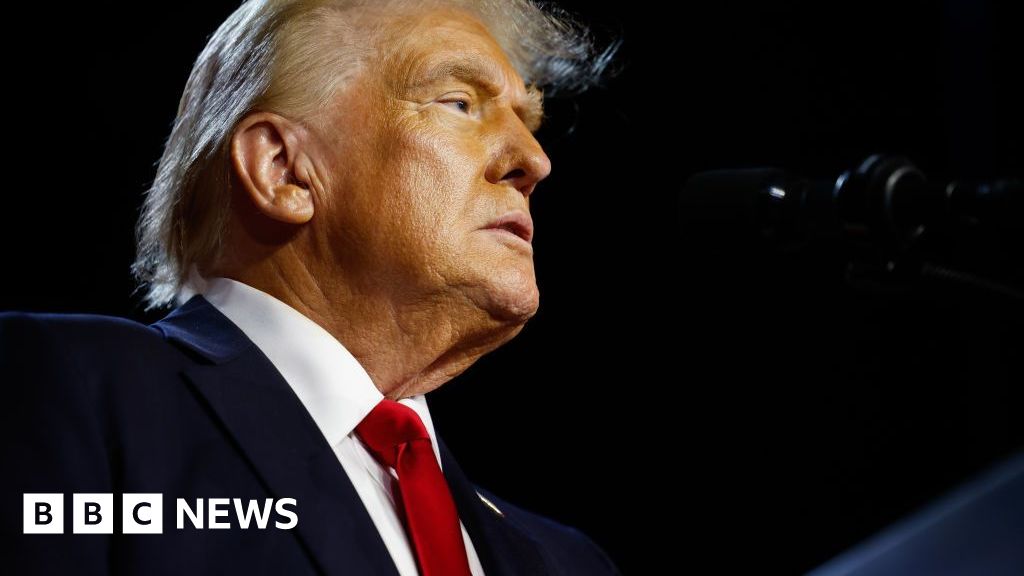ARTICLE AD BOX
By Reality Check team
BBC News
Image source, Getty Images
Image caption,Japan's Tokyo airport, earlier this year, when travel was restricted
The president of South Africa - where the Omicron variant of coronavirus was first identified - has criticised the travel bans imposed on his country and questioned the justification for them.
Cyril Ramaphosa said: "The prohibition of travel is not informed by science, nor will it be effective in preventing the spread of this variant."
So, what does the science say?
Image source, Getty Images
Image caption,President Ramaphosa said travel bans would be ineffective
What is the WHO position?
The World Health Organization (WHO) said in February 2020 that travel bans were "usually not effective" in preventing cases coming into countries, and may have a significant economic and social impact.
At the time, it said: "Travel measures that significantly interfere with international traffic may only be justified at the beginning of an outbreak, as they may allow countries to gain time."
Image source, Reuters
Image caption,A passenger stranded in Johannesburg tries to find a flight out of South Africa
It was criticised by then US President Donald Trump, who accused it of failing to support his decision to stop flights to the US from China and then Europe.
And the advice was ignored by countries in Asia such as Singapore and Taiwan, who restricted travel from China early on, followed by similar moves in many other countries across the world.
Since then, the WHO has updated its guidance and currently recommends a "risk-based" approach to travel bans.
It says countries should take into account increasing levels of immunity from either vaccination or natural infection, the spread of variants and the effectiveness of measures like testing and quarantine when restricting international travel.
However, it also says: "Countries that... are concerned that virus variants might pose a risk to others... should adopt a precautionary approach and implement time-limited, more stringent travel restrictions."
The WHO adds that these measures should be "proportionate."
What is the scientific evidence?
Studies after the initial phase of the pandemic, last year, suggested travel restrictions might have had some initial impact in at least slowing down the virus.
Research published in the journal Nature, in December 2020, said they worked very early on but became less effective the later they were introduced.
A study by the WZB Berlin Social Science Center in Germany last October looking at travel restrictions and death rates in more than 180 countries last year reached similar conclusions, adding:
- the biggest impact was when countries banned travel before recording 10 or more deaths
- mandatory quarantine for all travellers was more effective than entry bans (which in some cases exempted returning nationals)
- targeted restrictions on particular countries had more impact than blanket bans on all foreign travellers
Research which looked at the early days of the pandemic in the UK when there were few travel restrictions found the virus had been introduced over a thousand times, mainly from other countries in Europe.
The new Omicron variant has been identified in at least a dozen countries so far, and the list is growing.
Dr Deepti Gurdasani, an epidemiologist at London's Queen Mary University, told BBC News that while travel bans may slow it down, it was now clear it had spread to many parts of the world already.
"Rather than travel bans, you should have proper screening and isolation policies, which would slow the spread," she said.
Image source, Getty Images
Image caption,Queues at Schiphol airport, in the Netherlands
One key difference from the earlier stages of the pandemic is that vaccines are now being rolled out around the world.
However, the pace of vaccination is highly variable across countries - and their effectiveness against the Omicron variant remains uncertain.
Countries heavily reliant on tourism, for example, also have to weigh up the harm to their economies from restricting travel.
Who has had the strictest travel bans?
Australia reopened its international borders for the first time in November, after 18 months of only allowing its citizens to leave or enter the country if they had special permission.
Image source, Reuters
Image caption,Vietnam has only recently reopened its borders
New Zealand continues to have its borders closed, since last year, although its government has announced they will reopen for its citizens and for visa holders from Australia from the new year - and for vaccinated visitors, from April.
Vietnam has also had one of the longest travel bans, opening its borders for the first time this month.
These countries also had relatively few cases, until July this year, when the Delta variant, first identified in India, began to spread.
But lockdowns, widespread testing and safety measures such as mask wearing may have been as important as travel bans in keeping infections down at least in the first phase of the pandemic.

 2 years ago
62
2 years ago
62








 English (US)
English (US)